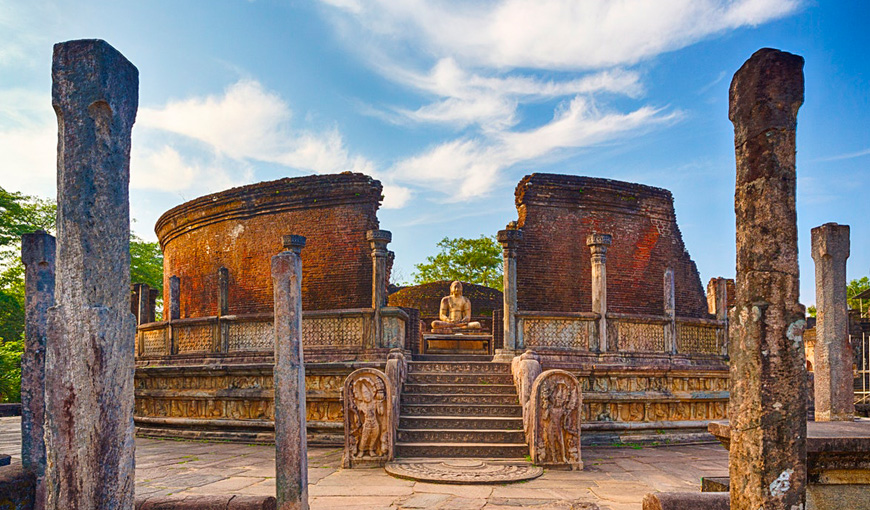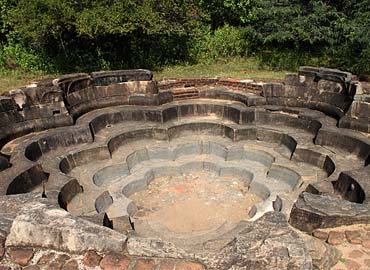POLONNARUWA
Polonnaruwa the second most ancient of Sri Lanka's kingdoms was first declared as the capital city by King Vijayabahu I, who defeated the Chola invaders in 1070 CE to reunite the country once more under a local leader. While Vijayabahu's victory and shifting of Kingdoms to the more strategic Polonnaruwa is considered significant, the real Polonnaruwa Hero of the history books is actually his grandson, Parakramabahu I. It was his reign that is considered as the Golden Age of Polonnaruwa, when trade and agriculture flourished under the patronage of the King, who was adamant that no drop of water falling from the heavens was to be wasted, and each be used toward the development of the land; hence, irrigation systems far superior to those of the Anuradhapura Age were constructed during Parakramabahu's reign, systems which to this day supply the water necessary for paddy cultivation during the scorching dry season in the east of the country. The greatest of these systems, of course is the Parakrama Samudraya or the Sea of Parakrama, a tank so vast that it is often mistaken for the ocean. It is of such a width that it is impossible to stand upon one shore and view the other side, and it encircles the main city like a ribbon, being both a defensive border against intruders and the lifeline of the people in times of peace. The Kingdom of Polonnaruwa was completely self-sufficient during King Parakramabahu's reign. However, with the exception of his immediate successor, Nissankamalla I, all other monarchs of Polonnaruwa, were slightly weak-willed and rather prone to picking fights within their own court. They also went on to form more intimate matrimonial alliances with stronger South Indian Kingdoms, until these matrimonial links superseded the local royal lineage and gave rise to the Kalinga invasion by King Kalinga Magha in 1214 and the eventual passing of power into the hands of a Pandyan King following the Arya Chakrawarthi invasion of Sri Lanka in 1284. The capital was then shifted to Dambadeniya. The city Polonnaruwa was also called as Jananathamangalam during the short Chola reign.




